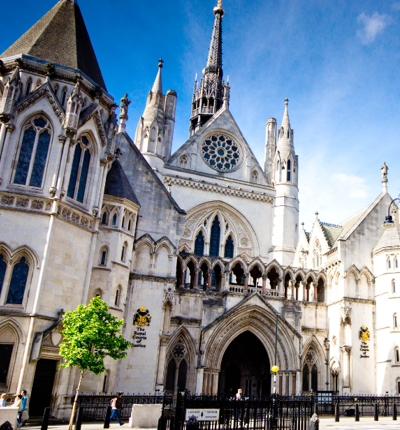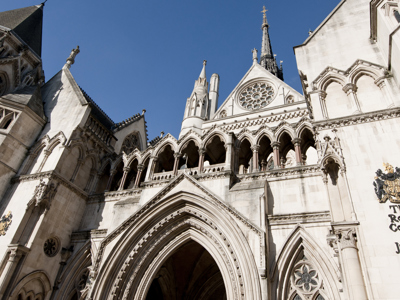
Chris Packham wins High Court defamation trial and is awarded £90,000 in damages
The High Court has today ruled in favour of environmental campaigner and naturalist Chris Packham CBE in his defamation case brought against Dominic Wightman, editor of Country Squire Magazine, and one of the magazine’s contributors, Nigel Bean. The court accepted the account of a third defendant, Paul Read, who claimed he was a mere proof reader.
Posted on 25 May 2023
The Court has awarded Mr Packham £90,000 in damages against Mr Wightman and Mr Bean.
The case, heard between 2 and 11 May 2023 related to nine articles, ten social media posts and two videos. The court ruled that the allegations made in these materials were defamatory and untrue. The allegations included that:
Mr Packham dishonestly raised funds for The Wildheart Sanctuary in relation to rescued tigers, which he falsely said had been mistreated
Mr Packham lied about peat burning on Scottish game estates during COP26.
Mr Packham dishonestly raised funds for the sanctuary during the covid pandemic while concealing that it would receive an insurance pay-out
During the trial, Mr Wightman and Mr Bean withdrew their truth defence in relation to the second and third of these allegations. They maintained a truth defence in relation to the first allegation, but the court determined that they “fail[ed] to come even close to establishing the substantial truth” of that allegation.
The Court concluded that: “Mr Packham did not lie and each of his own statements was made with a genuine belief in its truth. There was no fraud of any type committed by him in making the fundraising statements.”
Mr Wightman and Mr Bean also argued that they had a reasonable belief that publication of the allegations was in the public interest. The court ruled that this defence also failed “by some margin.”
The judgment states that, “rather than approaching the task with an investigative mind, these defendants targeted Mr Packham as a person against whom they had an agenda”. In particular, following receipt of Mr Packham’s initial legal complaint, the articles published by Mr Wightman and Mr Bean “gave way… to increasingly hyperbolic and vitriolic smearing of Mr Packham, with further unsubstantiated allegations of dishonesty regarding peat-burning and the Trust’s insurance gratuitously thrown in”. One of the articles complained of mocked Mr Packham’s manner of speaking, and several made offensive references to his autism.
During the trial the court heard that Country Squire Magazine published 16 articles mentioning Mr Packham in the four years before the first article complained of in the legal case, and a further 93 articles were published in the three years following. Mr Packham had not been approached for comment before the publication of any of the articles containing allegations about him, as is journalistic best practice. Furthermore, there was sparse documentary evidence that any of the allegations had been properly researched to ensure their veracity.
Mr Read withdrew his reliance on the defences of truth and public interest when he instructed separate legal representation shortly before trial, and his case (which the Court accepted) was solely that: (i) as a mere proof-reader, he had insufficient involvement in the articles; and (ii) his retweets of the defamatory allegations had not circulated sufficiently widely to have caused serious reputational harm to Mr Packham.
In awarding Mr Packham substantial damages against Mr Wightman and Mr Bean, the High Court accepted that their campaign “would have misled and agitated vocal and sometimes violent groups”, who “posted threatening and vile material about Mr Packham and his family online”.
The Court also held that the men had used this case as a way of introducing offensive and wholly unsubstantiated allegations to smear Mr Packham, and to “scare [him] off… from seeking recourse in a public hearing for the libels”.
In addition to the articles, social media posts and video complained of the in the legal case the defendants had also claimed that a death threat received by Mr Packham had been written by himself. This caused particular anguish to Mr Packham as it implied that he had lied to his family and friends, as well as wasting police time. The court held that Mr Packham did not write the death threat letter, concluding that “even a cursory examination of the handwriting in the death threat and comparison with a true sample of Mr Packham’s handwriting demonstrates obvious differences between the two.”
The court had also expected the handwriting expert instructed by Mr Wightman, Mr Bean and Mr Read to have been “horrified… and to have unequivocally withdrawn their evidence” when it emerged in November 2022 that their report, which concluded with certainty that Mr Packham wrote the death threat, had in fact analysed samples of his accountant’s handwriting. However, Mr Wightman, Mr Bean and Mr Read did not withdraw the allegation when this error was pointed out to them. Moreover, the court held that Mr Wightman was instrumental in procuring ostensibly third-party statements repeating the serious allegation, in “The Packham Papers” and in an article by Fieldsports TV. The death threat allegation was only formally withdrawn by Mr Read shortly before trial, and by the other defendants only on the third day of trial.
Chris Packham said:
“Every day many thousands of innocent people are victims of online abuse and hate crimes. This can be racially, religiously or politically motivated. It can be generated in regard to gender politics, environmental beliefs, body shaming. This vile part of modern life ruins lives, livelihoods, reputations, it disrupts young peoples’ educations, causes incalculable mental health problems and tragically causes people to take their own lives.
“As it stands the criminal law is simply not there to protect us from such hate – something that must change. The current governments ‘Online Safety Bill’ is plodding along. In the meantime a tiny minority of victims are able to take civil action.
“In the offending articles and tweets Mr Wightman and Mr Bean accused me of defrauding the public to raise money to rescue tigers from circuses, defrauding the public by promoting a crowd-funder during the COVID epidemic, lying about the burning of peat during COP26, writing a death threat letter to myself, and elsewhere of bullying, sexual misconduct and rape. They also accused me of faking an arson attack at my home and repeatedly called upon the BBC to sack me.
“In a full and frank vindication of my innocence the court has found that “Mr Packham did not lie and each of his own statements was made with a genuine belief in its truth”.
“Most egregiously all three defendants had advanced an allegation that I had forged a death threat letter to myself, an allegation that they managed to disseminate to the mainstream media.
“The Court has held that I did not write the death threat letter, concluding that “even a cursory examination of the handwriting in the death threat and comparison with a true sample of Mr Packham’s handwriting demonstrates obvious differences between the two”.
“Thank you to my followers for your unswerving support and belief in my honest crusade to make the world a better place for wildlife, people and the environment.”
Carol Day, Solicitor at law firm Leigh Day said:
“Mr Packham is grateful to the judge for his careful deliberation of the issues and is delighted with the judgment, which completely vindicates him of any fraudulent motivation in raising funds to rescue the ex-circus tigers, alongside further unsubstantiated allegations of dishonesty regarding peat-burning and insurance fraud. This case should provide a strong deterrent to anyone who sets out to gratuitously smear someone’s character simply because they don’t agree with their views.”
Mr Packham is represented by partner Tessa Gregory and solicitor Carol Day of Leigh Day and barristers Jonathan Price and Claire Overman of Doughty Street Chambers. Leigh Day instructed specialist costs counsel Benjamin Williams KC of 4 New Square Chambers for the hearing on costs and consequential matters on 25 May 2023.

Tessa Gregory
Tessa is an experienced litigator who specialises in international and domestic human rights law cases

Chris Packham defamation trial to be heard at High Court
Environmental campaigner and naturalist Chris Packham CBE will have his defamation case against the editor and two contributors to Country Squire Magazine heard in the High Court in London from Tuesday 2 May at 10.30am. The case is listed for eight days.


